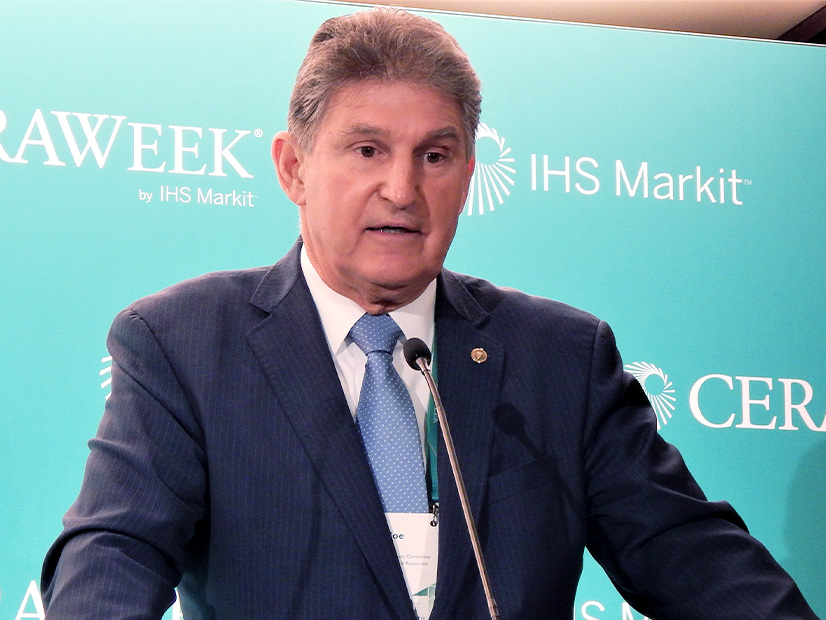U.S. Sen. Joe Manchin (D-W.Va.) withdrew his controversial infrastructure permitting bill from inclusion in the Senate’s must-pass spending bill Tuesday afternoon, conceding he lacked the 60 votes needed for passage.
Manchin and Senate Majority Leader Chuck Schumer (D-N.Y.) had agreed with President Biden and House Speaker Nancy Pelosi to pass permitting legislation before the new fiscal year, Oct. 1.
But Manchin tweeted Tuesday that he had asked Schumer to withdraw the permitting language from the continuing resolution. An initial vote on the measure to fund the government through Dec. 16 cleared the Senate 72-2 later Tuesday.
The package, which would have set a two-year target for the completion of environmental reviews and reduced the time community members have to file legal challenges, had angered both Republicans upset with Manchin’s vote for the Inflation Reduction Act and Democrats, who saw it as a concession to the oil and gas industry that would undermine climate efforts. (See Manchin: ‘Awful Lot of Heavy Lifting’ Needed to Pass Permitting Bill.)
Manchin also sought to guarantee permit approvals for the Mountain Valley Pipeline and give FERC enhanced electric transmission siting authority.
Schumer criticized Senate Republicans in a floor speech, saying they “have made clear they will block legislation to fund the government if it includes bipartisan permitting reform, because they’ve chosen to obstruct instead of work in a bipartisan way to achieve something they’ve long claimed they want to do.”
“Because American families should not be subjected to a Republican-manufactured government shutdown, Sen. Manchin has requested, and I have agreed, to move forward and pass the recently filed continuing resolution legislation without the Energy Independence and Security Act of 2022,” he added.
Minority Leader Mitch McConnell (R-Ky.) had warned earlier that Republicans would oppose Manchin’s proposal, calling it “permitting reform in name only.”
“What our Democratic colleagues have produced is a phony fig leaf that would actually set back the cause of real permitting reform,” he said.
Sen. Tim Kaine (D-Va.), who was angered by Manchin’s bid to ensure approval of the Mountain Valley Pipeline through Virginia and West Virginia, also announced his opposition to the proposal. Sen. Bernie Sanders (I-Vt.) had promised to oppose the funding bill if the Manchin proposals were attached.
After the vote on the continuing resolution, Schumer said he and Manchin would “continue to have conversations about the best way” to seek passage of the permitting measure before the end of the year.
Manchin also indicated he would continue to seek support for his proposal. “Over the last several weeks, there has been broad consensus on the urgent need to address our nation’s flawed permitting system. I stand ready to work with my colleagues to move forward on this critical legislation to meet the challenges of delivering affordable reliable energy Americans desperately need,” he said.
Manchin and sympathetic colleagues may seek to attach a version of the permitting legislation to another must-fund bill, the National Defense Authorization Act.
“Extending the negotiations could help the GOP pursue deeper reform by leveraging high energy prices — not just for gasoline, but also for electricity and natural gas — as a pressure tactic,” ClearView Energy Partners said in a note to clients. “If energy prices continue to contribute to inflation as midterm congressional elections approach, Democrat moderates from swing districts could become increasingly vulnerable to GOP attacks against President Biden’s green-leaning energy policy priorities.”




